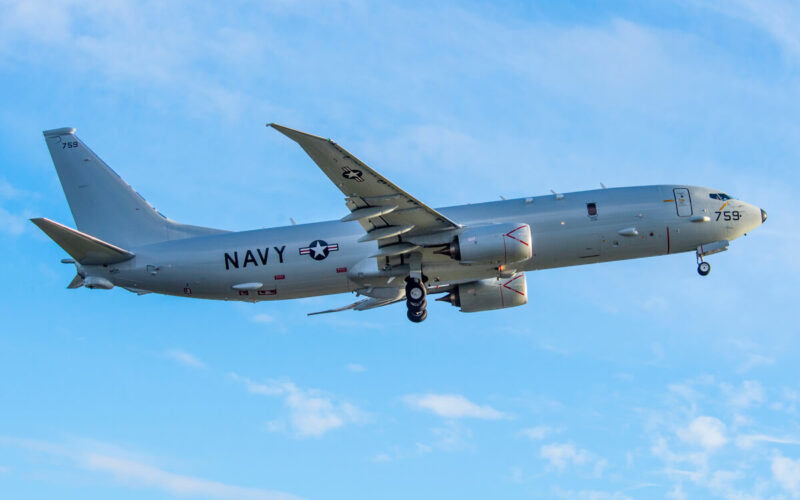A Russian Su-27 fighter jet was scrambled to intercept a U.S. P-8A Poseidon observation plane over the Black Sea near Crimea.
The Boeing P-8A Poseidon observation plane, registered 169328, belongs to the United States Navy Patrol Squadron Thirty (VP-30). It had taken off from Sigonella Air Base (NSY) in Italy and was approaching the state border of Russia, according to the Defense Ministry.
A Su-27 fighter jet belonging to the South Military District forces was scrambled when the observation plane was detected moving towards the border. Footage of the interception from inside the cockpit emerged on Twitter.
Еще немного съемок от подписчика. Перехват американского Р-8 Посейдон в нейтральном небе в 75 километрах от побережья Крыма. pic.twitter.com/Y9xIPPSBsE
— Александр Коц (@sashakots) July 4, 2019
“The crew of the Russian fighter approached a safe distance from the aircraft before identifying it as a US P-8A Poseidon reconnaissance aircraft, the latter having immediately changed its heading to move away from the border,” the Russian military told TASS.
A month before, on June 17, 2019, the Ministry of Defense said it had intercepted several B-52 strategic bombers from the 5th Bomber Wing at Minot Air Force Base in North Dakota, as they were flying in the same region.
Another incident on June 4, 2019, led to an official protest from the U.S. Navy. During an interception over the Mediterranean Sea, a SU-35 conducted several passes near a P8-A Poseidon, including “a high-speed pass directly in front of the mission aircraft, which put our pilots and crew at risk,” according to the 6th Fleet. The P-8A was reportedly affected by wake turbulence from the pass.
Overall in 2018, the Russian Radio-Technical Troops claimed they had detected and tracked 3,000 foreign warplanes, including 1,000 of reconnaissance planes, near the Russian airspace, with the troops being placed on high alert more than 4,000 times in that year.
Similarly, in 2016, NATO reported 780 interceptions on Russian aircraft in the Baltic airspace alone. Baltic Air Policing is one of the main missions of NATO air forces. It protects Estonian, Latvian and Lithuanian airspaces from incursions, as these countries have no airborne capability of their own.

